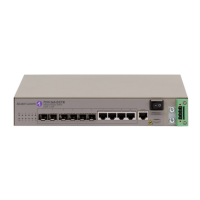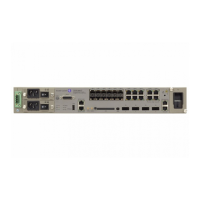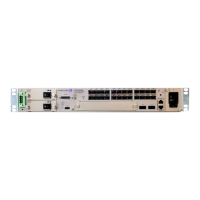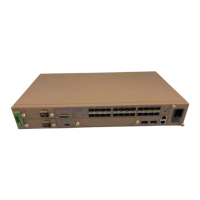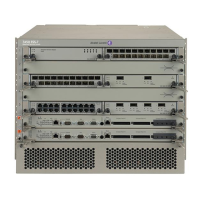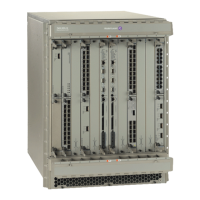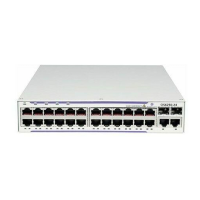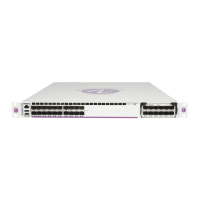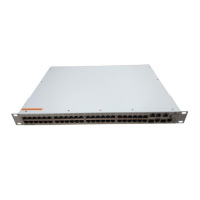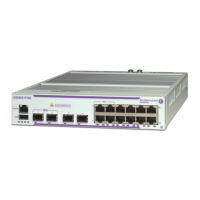QoS Overview
Page 30 7210 SAS D, E, K OS Quality of Service Guide
The 7210 SAS uses QoS policies applied to a SAP for a service or to an access uplink port to
define the queuing, queue attributes, meter attributes, and QoS marking/interpretation.
The 7210 SAS supports the following major types of service and network QoS policies:
• Service ingress QoS policies
• Service Egress QoS policies
• Access egress QoS policies
• Network QoS policies
• Network Queue QoS policies
Network QoS Policies
Network QoS policies define egress QoS marking and ingress QoS interpretation for traffic on
received on access-uplink ports. The router automatically creates egress queues for each of the
forwarding classes on access-uplink port.
A network QoS policy defines both the ingress and egress handling of QoS on the access uplink
ports. The following functions are defined:
• Ingress
→ Defines Dot1p value mapping to forwarding classes and profile.
→ Option to use IP DSCP value to map traffic to different forwarding classes (only on
7210 SAS-K).
→ Defines forwarding class to meter mapping (only on 7210 SAS-D,E).
→ Defines forwarding class to queue mapping (only on 7210 SAS-K).
• Egress
→ Defines the forwarding class to Dot1p value markings.
→ Option to define the forwarding class to IP DSCP value marking (option available
only on 7210 SAS-D and 7210 SAS-K)
→ Remarking of QoS bits can be enabled or disabled (option available only on 7210
SAS-D and 7210 SAS-K)
The required elements to be defined in a network QoS policy are:
• A unique network QoS policy ID.
• Egress forwarding class to priority bits (for example: 802.1p, etc.) used for marking, for
each forwarding class.
• A default ingress forwarding class and an optional in-profile/out-of-profile state.

